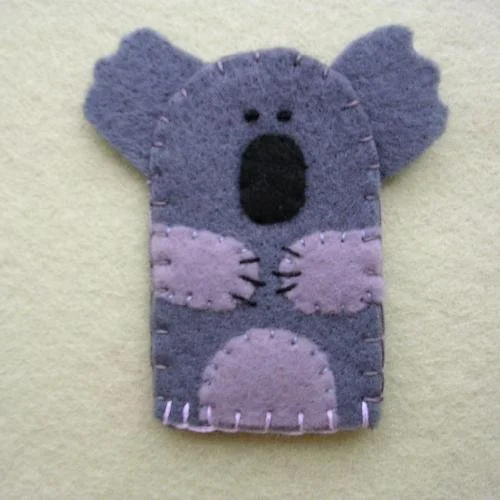Emotional regulation
WHAT IS EMOTIONAL REGULATION AND WHY IS IT SO IMPORTANT FOR OUR KIDS?
Emotions are our feelings.
Everyone experiences emotions, and emotions have an important purpose.
Emotions are designed to bring our attention to important things that are happening in our lives. These can be big or small events.
Some emotions are positive, such as joy & happiness, while others such as sadness, & anger are considered negative.
But all of our emotions are important.
Rhythm!
We are all musical beings and rhythm is the foundation of all our musical behaviours. Luckily, rhythm is in everyone - I’m sure you’ve already noticed a few rhythmic behaviours in your child. Here’s an evidence-based look at how rhythm develops and why it’s important.
Rhythm starts young…
We begin our relationship with rhythm incredibly early in our development.
Before birth the prenatal infant is aware of sound and is able to perceive and respond to basic rhythmic stimulation from very early in gestation.
Birth of the beat: 18m - 3 years
There is no doubt that young children enjoy playing instruments and making sounds. While their instrumental play may sound random, it contains regular rhythmic sound groupings which expand into longer rhythmic sequences. So you may notice that while they may not be in sync with the larger group, they can play very rhythmically with themselves.
Your child can engage in music listening, imitation, recognition, sounds, rhymes, melodies, rhythms, and tuneful singing. When your child gets towards 3-4 years old we will start to introduce solo singing in the TLC Music session. They now have a full aural awareness of sound attributes such as loudness, tempo, pitch, melodic contour, timbre, matching movement to music, experimentation with sounds and sound making, and the development of inner hearing.
Birth of the beat: 12-18 months
How do 12-18 month old children respond to music ?
Your baby is already a musical genius! You’ll notice how much your baby loves novel sounds, songs and especially when you sing to her or read a rhyming story. At 12-18 months your child is incredibly interactive and will start doing actions to songs they hear frequently. Here’s some evidence-based research so you know what your child loves and what they can do during music.
By 12 months of age a child is increasingly interested in play songs over lullabies. The rhythm of a play song will usually be engaging and have a fast beat, with a much stronger sense of pulse than a lullaby. Play songs are usually in duple time which providing a strong rhythmic base to assist the child in organising and coordinating their movements to the song.
Birth of the beat: Birth to 6 months
Your new baby is not only cute but is already a musical genius! You’ll notice how much your baby loves novel sounds, songs and especially when you sing to him or read a rhyming story. Here’s some evidence-based research so you know what your child loves and what they can do during music.
Music Perception 0-3 months
By the time she is born the newborn infant is so familiar with rhythm that within the first 24 hours of life she can already move in rhythm with the human voice.
Babies have incredible aural processing skills and can hear tones and changes in sounds that we can’t hear as adults.They can also hear our emotions in our voice …
Birth of the beat: 6 months to 1 year
What can babies hear and how do they respond to music?
Your baby is already a musical genius! You’ll notice how much your baby loves novel sounds, songs and especially when you sing to her or read a rhyming story. Here’s some evidence-based research so you know what your child loves and what they can do during music.
The many varied roles of massage therapy
The many varied roles of massage therapy
By Sarah Fogarty (TLC Massage Therapist and Acupuncturist)
Massage therapy is a diverse therapy offering different styles of massage to suit many different health needs and different purposes in your life.
The self-care massage treatment (also known as time out, ‘treat’ yourself, pamper yourself massage).
This type of massage is for the very important purpose of looking after yourself. Whilst you might experience some muscle aches and tightness there is no limitation in range of movement and the purpose of this type of massage is to facilitates a feeling of relaxation and self-worth through the action of taking some time out for yourself.
5 tips to encourage music-making at home
Music is VERY engaging for babies and children, they love it when you sing to them! Speaking to your baby in a sing-song voice helps calm them down when upset and promotes a more stable mood and deeper connection with you.
TLC Music Songs #8
Shake Shake the apple tree
Shake, shake the apple tree,
apples red and rosy
Shake, shake the apple tree,
apples red and rosy
One for you, one for me.
Shake, shake the apple tree.
Now, now it’s Harvest Time,
Golden leaves and berries
Now, now it’s Harvest Time,
Golden leaves and berries
Stack the corn in the barn.
Now, now it’s harvest time.
Blow, blow the leaves away,
windy, windy weather.
Blow, blow the leaves away,
windy, windy weather.
Blow them here, blow them there.
Blow, Blow the leaves away.
TLC Music Songs #7
Dancing Face
You can walk and talk
You can dance and sing
Round and round
In a rosy ring
You can swim in the sea
You can fly through space
But can you make a dancing face?
TLC Music Songs #6
On my toe
On my toe there is a bee
Now he’s climbing up on me
Past my tummy past my nose
On my head where my hair grows
TLC Music Songs #5
Rocking and Rolling
Rocking and rolling the boat on the sea
Rocking and rolling with you and with me
Wind come and blow us so gently along
Mermaids come guide us and sing us a song
TLC Music Songs #4
The colours are gliding
The colours are gliding, all around
The colours are gliding, all around
The colours are gliding, all around
And then all my colours with swirl to the ground
TLC Music Songs #3
Another song sheet so you can enjoy the songs and activities from TLC Music when you're at home.
TLC Music Songs #2
Here is a list of some of the songs we do in music so you can sing and enjoy them at home with your children :)
Containment holds to soothe and settle your newborn
Holding your baby firmly, swaddling them in a wrap or providing a containment hold can be very reassuring to your baby and can be a useful way of calming your baby down when upset or overtired. It can help your baby to get to sleep or comfort him after a fright or upset.
Used often with premature infants these containment holds also work well with newborns and young babies as they are unable to self-regulate and soothe themselves.
A containment hold is done by using your hands to hold your baby still gently but firmly and restraining their arms and legs if they are showing jerky, disorganized movement.
TLC Music Songs #1
Here are a couple of well-known baby songs to get you started using music at home with your baby. Why sing to your baby? Well for a start, they just love it. Singing will always be more engaging than speaking to babies. Singing also helps your baby learn to regulate their emotions as you are engaging them in a gentle, loving way. It helps calm them down and feel connected to you. Plus, your stimulating your baby's language, emotional and motor areas in the brain.
A reflection on parent wellbeing
A REFLECTION ON PARENT WELLBEING
Becoming a parent is often described as two opposing feelings in almost the one breath. People describe their experiences of parenthood as being simultaneously the most joyous and difficult of their life experiences.
Parents have established their new identity in the role of 'helper', providing all that is needed to their child who is physically, emotionally and financially dependent on them. Suddenly, on a surface level, the emotional needs of parents become less important compared to an infant who cannot settle, those explosive toddler tantrums or the emotional intensity of an adolescent
Communicating with your baby
While they can’t tell you exactly what they want, babies are still great communicators. From birth your child has sought connection and communication with you. By learning your baby’s cues and responding in a gentle and timely way you are teaching your child so many things:
- That they are important
- That you are there to help them
Reading your baby's behaviour
Being able to read your baby’s behavior has many benefits for you both. By communicating by gesture and expression our babies tell us how they are coping and indicate what they need. For us as parents, it’s so helpful to be able to tell what our baby wants and then provide it for them.
Ultimately you want your baby to have lots of organised behaviours and not too many disorganised behaviours. If they are displaying disorganised behaviours then that’s our cue to support them by providing food, clean nappy, less stimulation, sleep time or a cuddle.




















